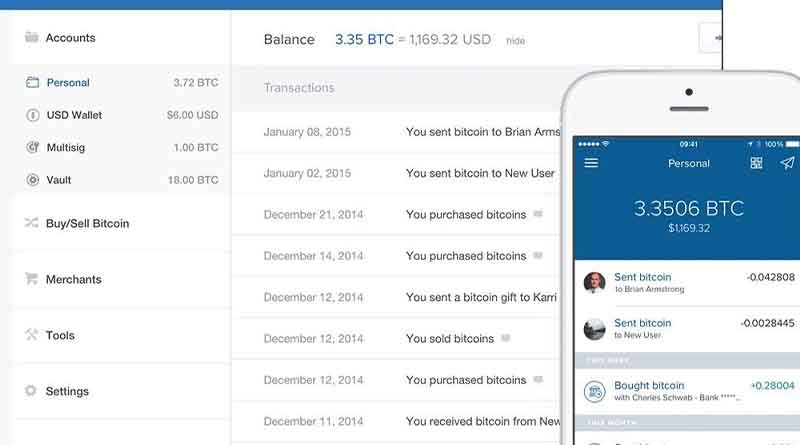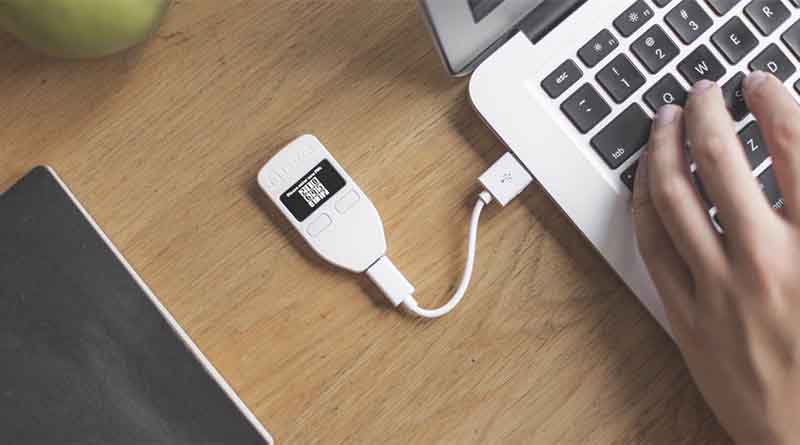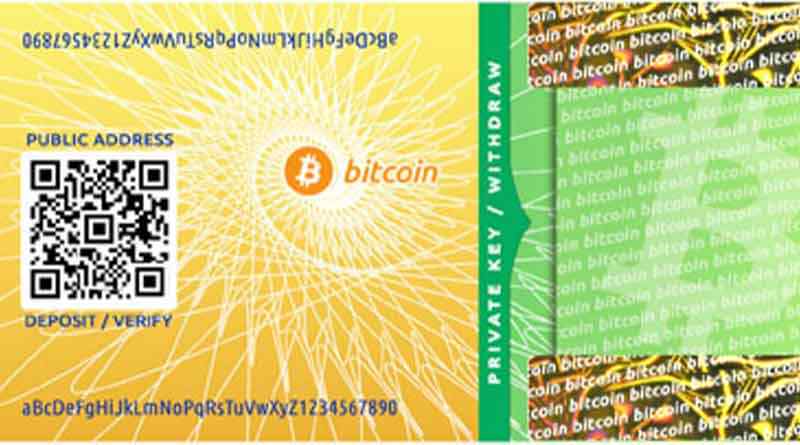Get a Bitcoin address
Anyone who wants to have bitcoin needs a bitcoin address. It’s mandatory. If you don’t have a bitcoin address, where will your bitcoin live? This article will discuss everything from how to get bitcoin address through different types of bitcoin wallets, and finally – recommended places to get your bitcoin wallet. So let’s dive right in.
What is a bitcoin address?
Stop. You’re asking the wrong question. We need to backtrack and ask what a bitcoin wallet is. Just as your money resides in your wallet, your bitcoin resides in your bitcoin wallet. A bitcoin wallet is an online account (similar to an email account or an online bank account). In your Bitcoin wallet, you can see your bitcoin balance, send bitcoin, and receive bitcoin. Two elements comprise every bitcoin wallet, and it is essential you know both of them well:
- Public key: the public key is what many people refer to as the bitcoin address or wallet address. It is a string of 25 to 65 digits – both letters and numbers – which enable the wallet owner to receive bitcoin. This would be the equivalent of your email address or your bank account number in an online account. You can share the public key with anyone.
- Private key: this is the second string of digits in your wallet; it is aptly named as it is private. It’s the equivalent of your email password or your bank account password. You use it to log in to your bitcoin wallet, and without it – you would not have a way into your account. Only share this code with people you want to log in to your bitcoin wallet.
We will get into types of wallets in a bit. First, let’s simplify the bitcoin wallet with an example.
John wants to send Jane 1 bitcoin. So he goes online and logs in to his bitcoin wallet account. John uses his private key to complete the login process.
Next, he wants to order his account to send bitcoin from his account – aka his bitcoin wallet – to Jane’s wallet. He uses Jane’s bitcoin address – or public key – to send Jane the bitcoin.
Bitcoin wallets
So we saw in the previous part that a bitcoin wallet is an online account. But that’s not entirely accurate. There are four types of bitcoin wallets. In this section of the article, we’re going to look at all of them in detail.
The web-based wallet
A web-based bitcoin wallet is all online. There is a wide range of websites offering wallets for your cryptocurrency. Once you’ve chosen the website you want to keep a wallet on, you will need to go through a registration process. A bitcoin wallet registration process requires identification, as your identity needs to be verified.
This bitcoin wallet is probably the easiest to get and use. However, it comes with a significant disadvantage: security. A web-based wallet is only as secure as the website hosting it. Pro tip: if you go for a web-based wallet, try to find the most secure host possible. You can also scroll to the last section of this article for some of our top picks.

Web-based wallet image courtesy of Investopedia.com
The software wallet
The software wallet is not stored online but rather in a program you need to download. It works similarly to the web-based wallet, but you need to run the program to use it.
This type of wallet adds a security layer if you download the program to an external memory bank, such as an external hard drive or a flash drive. This will enable you to disconnect your external memory bank from the computer when it isn’t in use. Thus no malware or spyware or any such malevolent forces can get to it.
The hardware wallet
A hardware wallet is a physical device that contains your bitcoin wallet. To use it, you need to plug it into the computer. When not in use, it can be disconnected from the computer. Disconnecting the hardware wallet provides the same level of security as disconnecting the software wallet. It’s similar to the software wallet, except no download is necessary. Another significant difference is the cost of the device. There are different devices on the market with very similar features. The current price ranges from around 50$ to 300$ and changes all the time.

Trezor hardware wallet image courtesy of medium.com
The paper wallet
Indeed, paper wallets are made of paper. This wallet is a print-out of the private key and the public key, both in text and QR code. You can’t connect it to any computer. To use it, you need to scan the required QR code (the private key to log in to your wallet or the public key to send bitcoin to that wallet).
This wallet provides the highest possible level of security, as it is entirely offline. However, it is much easier to lose track of, as it is also just a scrap of paper. It’s also pretty easy to steal for the same reason.

Bitcoin paper wallet
Where to get bitcoin wallets
You know what a bitcoin wallet is, and you know all the types of available wallets. So, where can you get a bitcoin wallet? In this section, we’ll give you recommendations for reliable sources for each type of wallet.
- Blockchain.info: this web-based wallet is one of the oldest wallets in the biz, with over 23 million users. It is effortless to set up and use. This wallet works on desktop and mobile, supports 2FA and SMS authentification. It also provides backup and restoration options for your wallet. This wallet only supports Bitcoin, Bitcoin Cash, and Ethereum. If you’re looking for a great web-based wallet that supports an extensive range of cryptocurrencies, try Guarda.
- Coinbase: Coinbase offers a tremendous web-based wallet, but this is a recommendation for its software wallet. As a Coinbase client, you don’t just benefit from their robust security and years of experience. You can also enjoy their unique feature, “Coinbase Earn,” where you can earn cryptocurrency for watching videos and completing quizzes. You should be aware that they do have relatively high transaction fees.
- Trezor: hardware wallets have very few sources by comparison to all other types of wallets. Few companies are producing the devices. Out of those brands, Trezor stands out in terms of security. The prices range from $55 for the Trezor One, and up to $600. The Trezor One – which is the cheapest device – has excellent security. It will also support over 1000 altcoins.
- bitaddress.org: This website exists for one purpose: to generate paper wallets. As it’s paper, it’s the most secure wallet you can get. When generating the paper wallet, the critical thing to remember is to follow the website’s instructions precisely and not type your wallet address anywhere. Once the paper wallet is ready, you will need to print it. If you don’t have access to a printer and you’re adamant about using a paper wallet, you can use screengrab and save the image on an external memory bank. However, if you use a screengrab, you forfeit the wallet’s security benefits every time you view the image on a device connected to the internet. So best prepare a printer for the wallet.
Now you know everything you need to know about how to get a bitcoin address. So get out there and get your wallet!




